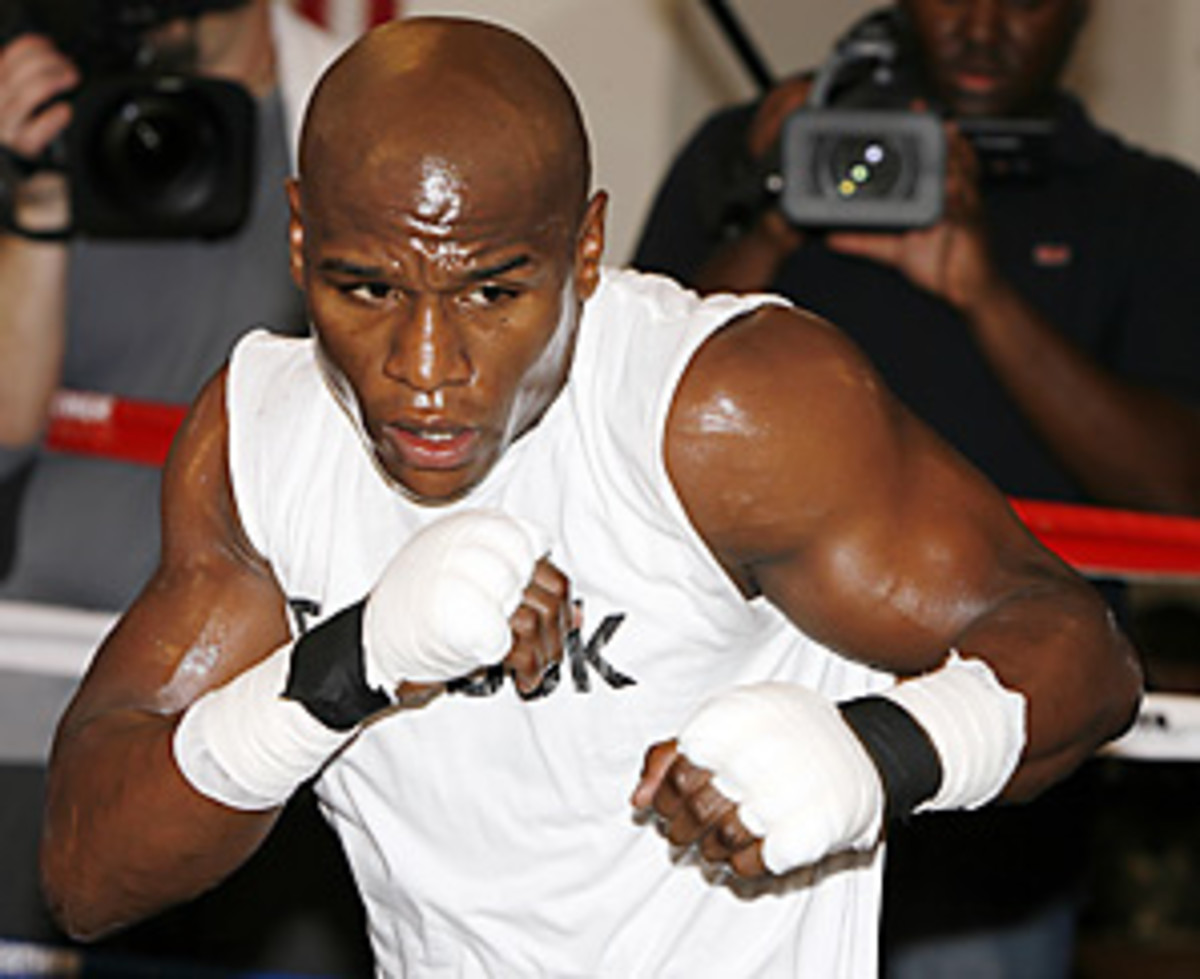
New Orleans makes its case for Mayweather-Pacquiao megafight
The agreed-upon date is March 13. The weight, according to an industry source, will be the 147-pound welterweight limit. And the venue? Eh, that's not so clear.
Major cities across the country are clamoring for the opportunity to host Pacquiao-Mayweather, arguably the biggest fight in more than a decade and one that represents 10 of millions in revenue for the winning city.
The usual -- along with a few unusual -- suspects have already lined up. Las Vegas, home to the majority of major fights, has the MGM Grand and Mandalay Bay properties ready to go, and has proposed erecting a 30,000-seat outdoor stadium on Las Vegas Boulevard to accommodate the expected demand for tickets.
Executives from the Staples Center in Los Angeles have expressed interest.
New York officials have lobbied to hold the fight in the new Yankee Stadium.
In Dallas, Cowboys owner Jerry Jones has spoken with Arum about putting the fight in his new $1.3 billion, 111,000-seat Cowboy Stadium.
But there is one venue that has intrigued representatives from both Pacquiao's and Mayweather's camps: New Orleans.
Though not generally thought of as a boxing hotbed -- the last fight of any significance in the Big Easy was Roy Jones Jr.'s light heavyweight title fight against Eric Harding in 2000 -- the city does have a rich history. It hosted the first world heavyweight title fight in recorded history when Jem Mace defeated Tom Allen in nearby Kennerville. In 1978, the Superdome was the host when Muhammad Ali reclaimed the heavyweight title from Leon Spinks to become the first three-time heavyweight champ in history. Two years later, it was the site of the infamous "No Mas" fight between Roberto Duran and Sugar Ray Leonard, which ended when Duran suddenly and inexplicably waved the fight off in the eighth round.
The city also has a heavyweight advocate James Carville, a former White House advisor-turned-political analyst, who has been burning up the phone lines promoting his hometown.
"I've let the parties involved know that we would like to make a presentation," Carville said in a telephone interview. "Down here, we have a lot to offer."
Carville's pitch emphasizes New Orleans' ability to not only host a fight, but also a major event. Mardi Gras, Jazz Fest, Voodoo Fest and the Essence Festival are hosted annually by the city, and the NBA's 2008 All-Star game in New Orleans was so successful that the league is contemplating going back in the near future.
"If [the promoters] are looking at it just as a fight, we make as much sense as anyplace else," said Carville. If they are looking at it as an event, we make more sense than anywhere else. We can do a lot of creative things and we can do a better job of making it an entire event."
Still, money talks in boxing and though New Orleans could pack a sizeable crowd into the Superdome (a spokesman for the stadium said 70,000 seats could be available for the fight), Louisiana's 6-percent income tax looms as a major obstacle. Neither Nevada nor Texas has a state income tax, and Arum told SI.com recently that any city hosting this fight would have to be a tax-free zone.
"It doesn't make sense otherwise," said Arum.
To that end, Carville has worked with representatives from Governor BobbyJindal's office to come up with enough tax credits to make the city palatable or to waive the tax entirely.
"I've talked with enough people to feel pretty comfortable saying we can get [the tax issue] done."
Carville says that when negotiations for the fight location begin in earnest, it should be a public process.
"I think that the best thing for the sport would be to open up the process," Carville said. "Everyone should make their pitches public. That kind of openness would create a whole different mood around this event. Let Dallas talk about what they have to offer. Let Las Vegas. Let us. These two athletes deserve a hell of exhibition. Let's give it to them."




